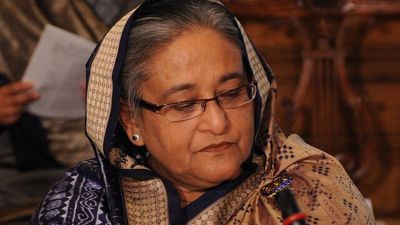Restoring the peace
Egypt and Israel attempt to restore balance to their ties
While parts of the Arab world have been awaiting their new political order to consolidate itself,the Middle Easts original problem still labours under unobtainable solutions. It has been a potential destabilising factor for the Arab Spring. On Thursday,gunmen from Gaza attacked civilian buses near the Israeli resort of Eilat,across the Israel-Egypt border on the Sinai Peninsula. The rest has pretty much followed script: Israel retaliated by chasing the attackers into Sinai and killing them,then launching airstrikes on Gaza. Palestinian militants,certainly Hamas,have fired rockets into Israel. There have been casualties on all sides,but its the death of five Egyptian security personnel in Sinai,in the course of the Israeli action,that has escalated into a diplomatic row and triggered popular protests in Cairo.
The fallout has been mitigated somewhat by Israels expression of regret and Egypts withdrawal of a threat to recall its ambassador. However,the Israeli government and Egypts interim administration will not make the mistake of discounting the singularity of the cold peace that has defined ties across the Sinai since the Camp David Accords of 1978. The Israel-Egypt peace treaty has been the most important deterrent in the Middle East crisis. But Hosni Mubaraks departure had raised concerns in Israel about any future Egyptian governments commitment to the treaty,by which Israel is secured across the demilitarised Sinai.
The short-term interests of Israel and Egypt cohere to such an extent that this row is unlikely to last long. But its the long term that both states would have to keep in mind,especially since any future government in Cairo is unlikely to offer Mubaraks solid 30-year friendship..




- 01
- 02
- 03
- 04
- 05



























